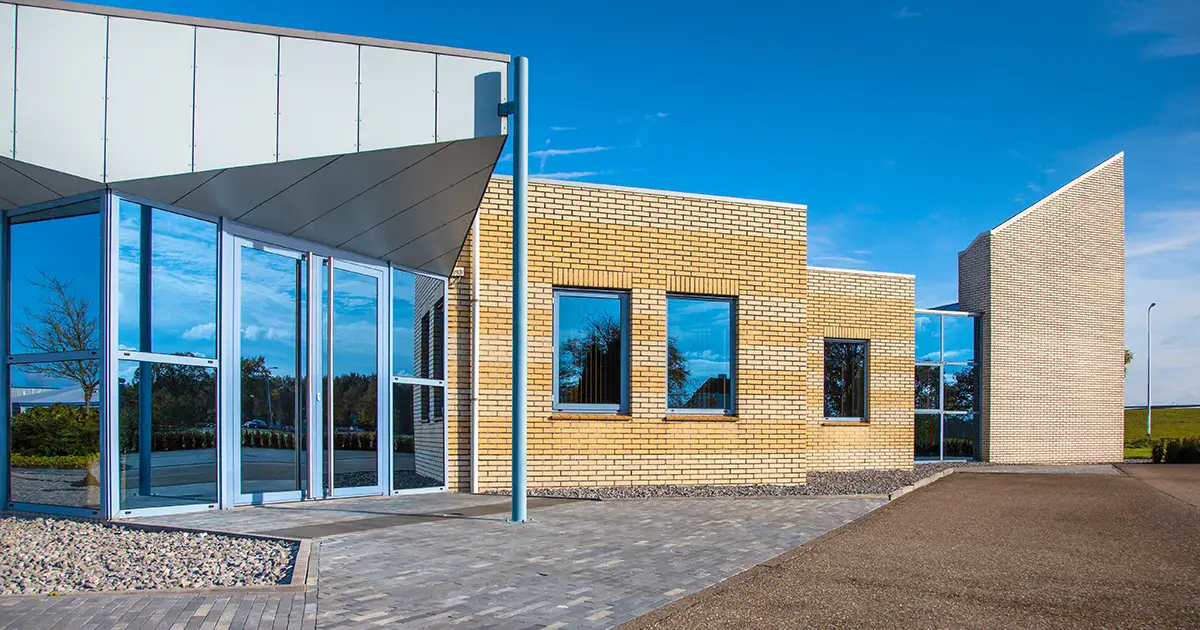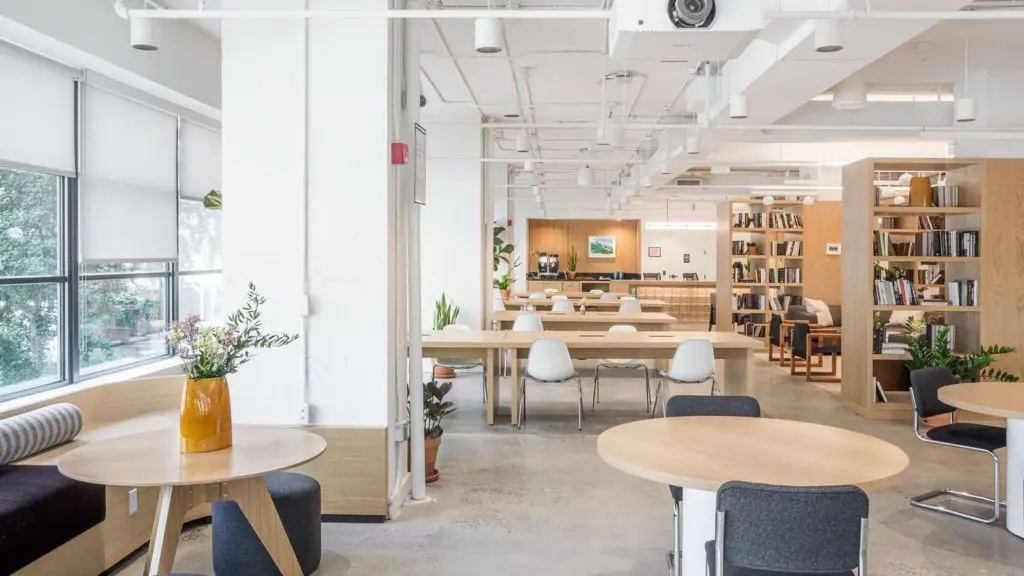
Why Commercial Real Estate Matters for Startups
Commercial real estate is more than just a place to conduct business. The space you choose can help establish your company's identity, foster collaboration, and enhance customer experiences. For many startups, securing the right commercial property is a key step in scaling operations and attracting talent or customers. Here are some of the reasons why finding the right space is important for startups:
- Brand Image: The location and type of space you occupy reflect your brand’s identity and values. For example, a trendy office in a popular city district may attract young, creative professionals, while a more professional setting could appeal to corporate clients.
- Employee Productivity: A well-designed and comfortable workspace can improve team collaboration, employee morale, and overall productivity.
- Customer Access: The location of your business determines how easily customers can find and visit you. A good location can bring in foot traffic, while a poor one may make it difficult for potential customers to engage.
- Growth Potential: As your startup grows, your space needs will evolve. Finding a flexible lease with room for expansion can be a strategic move to accommodate future growth.
Types of Commercial Real Estate for Startups
There are several types of commercial spaces to choose from depending on your business needs. Here’s an overview of the most common options:
- Office SpacesBest For: Technology startups, professional services (law, finance, consulting), creative agencies.What to Look For: If you need an office space, consider factors like the layout, amenities, and location. For a startup, you may prefer a modern co-working space or a private office that can be customized as you grow.Example: Co-working spaces like WeWork or Regus offer flexible terms, allowing startups to rent office space by the month or year, with amenities such as high-speed internet, meeting rooms, and community events.
- Retail SpacesBest For: E-commerce brands expanding into physical stores, food businesses, and retail startups.What to Look For: Retail spaces should be located in high-traffic areas, such as shopping malls, main streets, or commercial districts. Accessibility, visibility, and proximity to your target customers are key.Example: A clothing boutique looking to open its first storefront would benefit from being in a popular shopping area with lots of foot traffic, such as a shopping mall or a busy city street.
- Industrial SpacesBest For: Startups in manufacturing, logistics, or businesses requiring large storage areas.What to Look For: Industrial spaces often offer more square footage for a lower cost, but you should consider proximity to transportation hubs, warehouse conditions, and zoning requirements.Example: A startup focused on e-commerce fulfillment may need an industrial space to store inventory and manage shipments efficiently.
- Flex SpacesBest For: Startups that need a combination of office, warehouse, and retail space.What to Look For: Flex spaces are designed to be flexible and adaptable. They are ideal for startups that require both office space and a production or storage area. This type of space can easily be customized to suit your growing needs.Example: A tech startup that manufactures prototypes may need a flex space that combines office areas with a lab or assembly area.
- Pop-Up SpacesBest For: E-commerce businesses testing physical retail, seasonal businesses, or companies with short-term promotional needs.What to Look For: Pop-up spaces are temporary commercial spaces rented for a limited time. They offer flexibility for startups to test new products or reach customers in specific locations without committing to a long-term lease.Example: A startup launching a new product might use a pop-up shop in a high-traffic area for a few weeks to generate buzz and gauge customer interest.
Key Considerations When Choosing Commercial Real Estate
- Location, Location, LocationLocation is one of the most important factors when selecting commercial real estate. Consider proximity to your target market, ease of access for employees and customers, and overall neighborhood demographics.Urban vs. Suburban: An urban location might offer more visibility and foot traffic, but it can also come with higher rental costs. A suburban location might be more affordable but could have less exposure. Choose based on your budget and business goals.
- Size and LayoutThe space you lease should accommodate your current and future needs. Think about the number of employees you’ll have, the space you need for inventory or equipment, and any special requirements like meeting rooms, kitchenettes, or storage.Growth Potential: Choose a space with the ability to expand as your startup grows. Some spaces offer flexible layouts or allow you to scale by leasing additional square footage later.
- Lease Terms and FlexibilityStartups may not have the stability to commit to long-term leases. Look for short-term leases, subleasing options, or flexible co-working arrangements. Many commercial real estate landlords are willing to negotiate terms for startups to secure tenants.Consider Rent Increases: Be aware of how rent increases are structured. Some leases include rent escalations tied to inflation or market conditions, which can be costly for startups in the early stages.
- Amenities and InfrastructureThink about what amenities are essential for your team. Does the space offer parking, public transport access, high-speed internet, or HVAC systems? If you're in an office building, check for shared amenities like conference rooms, kitchen facilities, or reception services.Technology Needs: Startups often rely heavily on technology, so ensure that your space can accommodate your tech infrastructure, such as high-speed internet, wiring for servers, and ample power outlets.
- Zoning and Legal ConsiderationsMake sure the property is zoned for the type of business you want to operate. Zoning laws affect where certain businesses can be located, and violating zoning laws can result in costly fines or forced relocation.Permits and Licenses: Understand any permits or licenses you may need to operate in a commercial space, especially if you're running a business that involves health, safety, or food regulations.
Tips for Negotiating Commercial Real Estate Leases
- Understand Market RatesResearch the average rental rates in your desired area. Understanding the going rates will give you leverage when negotiating lease terms. If you’re just starting out, look for spaces in emerging or up-and-coming areas where rental prices might be lower.
- Ask for Tenant Improvement (TI) AllowancesMany landlords offer tenant improvement allowances to help cover the cost of customizing the space to meet your needs. These improvements can include adding partitions, updating flooring, or installing new signage.
- Consider Rent AbatementRent abatement is a negotiation tactic where you request a rent-free period at the beginning of your lease, which allows you time to set up the space without incurring additional costs. This can be particularly helpful for startups on a tight budget.
- Consult a Commercial Real Estate AgentA real estate agent who specializes in commercial properties can help you find the best deals, navigate lease negotiations, and ensure that your lease terms align with your business objectives.
Conclusion: Finding the Right Commercial Real Estate for Your Startup
Finding the right commercial real estate for your startup can be a challenging process, but with careful planning and research, you can find a space that supports your growth and aligns with your brand. Consider factors like location, size, lease flexibility, and amenities, while ensuring that your lease terms are favorable to your business's financial health. Whether you're looking for






